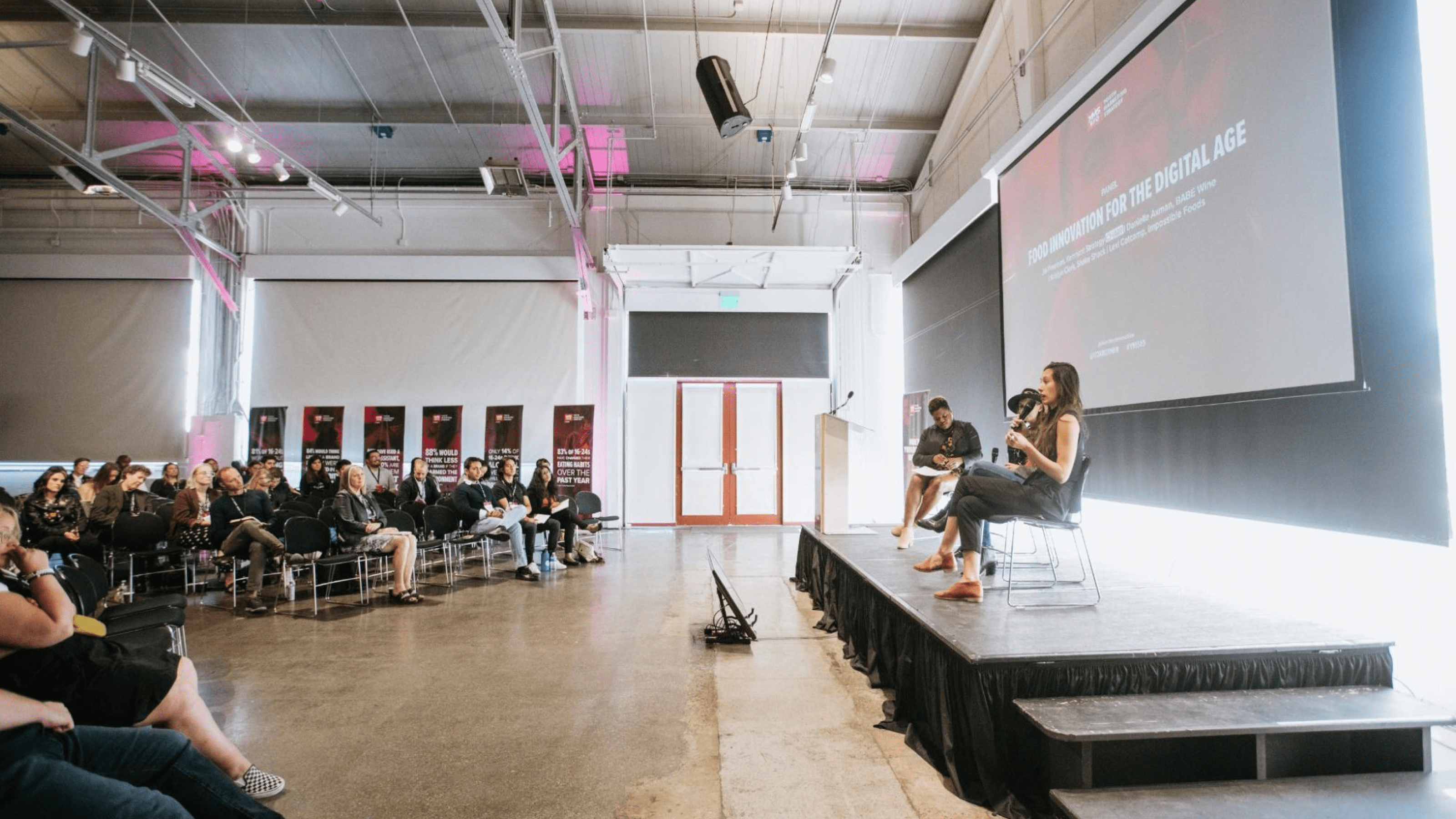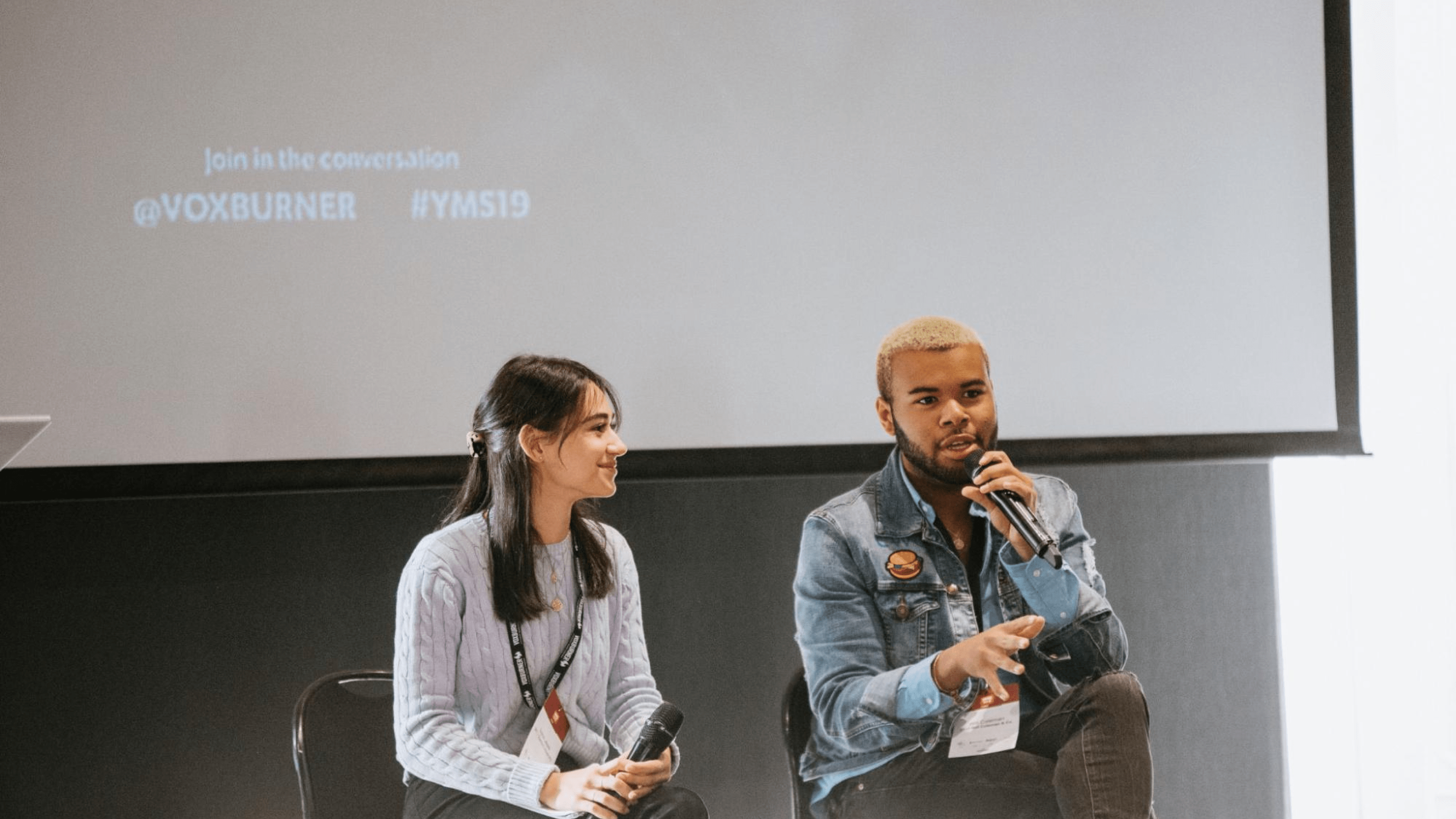Attendees love a roundtable discussion because everyone can participate in the conversation, promoting engagement. It can be the highlight of your conference or corporate event, but you don’t want it to turn into a shouting match!
Here at Eventbrite we’ve facilitated countless events, and accumulated a wealth of experience in organizing and managing roundtable discussions.
To avoid a chaotic free-for-all (or yawn-inducing session), we’ve provided you with our most valuable advice and insights gained from that experience.
Get ready to host a remarkable roundtable event that leaves a lasting impression.
What is a roundtable discussion?
A roundtable discussion is a collaborative meeting where all participants have an equal opportunity to join in. It usually involves a moderator who keeps everyone on topic and several experts who each contribute.
What is the difference between a panel and a roundtable?
A panel discussion involves senior members of the community or industry offering insights on a topic, with question time at the end. A roundtable is less formal, often starting with a few short presentations from industry experts to kick things off and provide direction. Both are led by a facilitator or moderator, with roundtable attendees invited to join the discussions and contribute to the outcomes.

The 7 parts of a great roundtable discussion
If you don’t know where to start, it can be intimidating to try and put together a roundtable discussion. That’s why this guide breaks down the seven parts that professional event planners recommend you include in your roundtable discussion to ensure it goes well.
1. Define your goals
Your roundtable discussion can be an engaging alternative to a keynote speaker. However, it’s important to know exactly what you want your attendees to gain from the format, and whether a roundtable is the best way to achieve this.
Establishing your goals upfront will help you run a smoother event and can become the basis of your agenda (find tips for a focused agenda below).
To help define your goals and group discussion topics, consider the following:
- Is your industry facing a problem that you would like to address?
- How does the topic reflect your brand?
- What will you do with the information after the event?
Advice from event professionals: Once you’ve determined your goals, decide whether a roundtable group discussion is the right format to achieve them. Consider whether this is a topic that would benefit from a variety of expert perspectives.
Roundtables tend to work best on topics that are still disputed or unresolved within an industry, have multiple viable approaches, or are so complicated they require multiple perspectives.
For a brainstorming meeting or information-sharing with minimal interaction, try some of these alternate ideas for creative conference activities.

2. Plan your room
Once you’ve decided how many people will attend your event, it’s time for logistics.
How long will the roundtable activity run? What’s the ideal number of people for a roundtable? If your time allocation is generous, group sizes can be larger (10–15), but if time is short, groups might need to be smaller (around six to eight), so everyone can contribute.
Consider a mix of formats like breakout sessions or panel discussions in parallel to your roundtable to inspire attendees and keep the group discussion flowing. Why not use more than one room or partitions for separation?
If you want help envisioning your seating arrangement, consider using a tool like Eventbrite’s Reserved Seating solution to map out your audience, speakers, and anything else you want in the room.
Advice from event professionals: The moderator should have a vantage point that gives them an overall view of what is happening so they can facilitate the event — think a stage or podium. Don’t forget to create room for people to move about and mingle during informal discussions.
3. Consider running a virtual roundtable discussion
Virtual and hybrid events have proven to be high-value opportunities, and either format could be the right fit for your roundtable. They can be just as engaging and exciting as in-person events, plus they can have the following benefits:
- Virtual event creators bring together a broader geographic audience with the potential for a global reach.
- Travel costs that could have prevented attendees (or talent) from attending an in-person event are no longer an issue.
- Virtual events can be more inclusive and environmentally sustainable than in-person events.
- Going virtual means lower overhead costs – you’re not budgeting for a venue, venue staff, or other in-person requirements. This depends on the details, but savings can quickly enter thousands of dollars according to some estimates.
- With the right technology and a live streaming platform, participants can react to speakers using emojis, giving a real-time gauge of how the audience members are receiving the speaker.
- You can send recordings to attendees and a wider audience after the event, including anyone who couldn’t attend.
- Outcomes can be coordinated through online chat rather than by email.
Those advantages were clear to Cooper Union when they organized their panel on the role of drawing in architecture through Eventbrite. They held a hybrid virtual and in-person event to maximize the number of people that could benefit from their expert discussion.
Advice from event professionals: It’s much easier to track who’s watching what when everyone’s tuning in online. Coupled with a marketing platform like Eventbrite Boost, that’s retargeting gold. All that attendee data is music to sponsors’ ears, so it’s a great way to secure partners.

4. Invite the right people
Like selecting a keynote speaker, the person you choose to moderate the conversation can be the difference between a memorable event and a flop. A strong moderator will know how to facilitate a roundtable discussion and get things back on track if they start to veer off-topic or stagnate.
Here are some quick suggestions for finding the right candidate:
- Do your research and ask potential moderators for professional references.
- Look to your network for recommendations for someone your peers have had success with.
- Remember, experienced speakers can be expensive, so set a budget aside for experienced and influential moderators
- Search for similar events to find and connect with tried-and-true moderators.
- Meet your preferred candidate face-to-face or online before booking, to assess how they engage in conversation.
- If you’re not hiring an experienced moderator, ensure your chosen person understands the topics you need to cover and has an approach that will guide participants in the right direction.
When you’re hosting a roundtable discussion, allow attendees to engage on a more personal level rather than passively listening. For example, at a hybrid event, those attending in person can break into smaller groups at tables, while those online can join a virtual breakout or small group for discussion.
Advice from event professionals: If you’re organizing multiple groups from a variety of professional backgrounds, review the job titles of each attendee on your attendee list and connect complementary skills with relevant group discussion topics.
5. Prepare a brief for facilitators
When you’ve set goals for your roundtable discussion, consider how your event might achieve them. Be clear about the specific topic of the roundtable and any interesting insights you might want to be sure they cover.
Preparing a brief for your facilitators is a professional tip that helps facilitators stay focused where you want them. The brief should provide them with:
- Clarity about your expectations and desired outcomes
- A timeline of proceedings
- Lead-in questions that frame the discussion topic
- Relevant topics and clear guidance for group discussions
Advice from event professionals: Remember that the moderator is at the table to facilitate conversation, not lead it. Include this as one of your points in the brief, to make sure you’re on the same page.

6. Set an agenda
Give every attendee a copy of the agenda, ahead of time if possible, to keep them well informed and focused. Your agenda should include:
- Topic: The primary topic for your roundtable discussion
- Purpose: The purpose of the discussion, to help attendees work toward a common goal
- Specific questions: To avoid misunderstandings or vague answers
- Timeline: The start time, finish time, and any breaks so everyone knows how much time to spend on a topic and to avoid disrupting the flow of conversation
- Key information: So attendees don’t need to ask housekeeping questions, such as the location of the bathrooms or standard refreshments
- Ground rules: A code of conduct to limit undesirable behavior (such as a single person dominating the conversation or speaking over others) and ensure a positive experience for everyone
Advice from event professionals: Make sure your agenda calls out times when people will be able to ask questions and make remarks on other topics. That way, you can keep those parts of the conversation limited to the portions where it’s permitted, and not derail the discussion.
7. Record and share the results
Where possible, record each roundtable group discussion or delegate extra sets of hands to transcribe the major points and outcomes. A successful conversation will produce content that’s valuable to both your attendees and event branding.
Sharing results with participants keeps them engaged after the event, and could also create content to attract a similar audience to future events. Part of your planning should include how the results of the discussion will be used. If you have groups, assign time for each table to share the top-line results and engage in further discussion.
The East Tennessee Historical Society did this by distributing the recording of their Title IX trailblazers roundtable. After making the event on Eventbrite, it was easy for them to send out the recording to everyone who attended.
Advice from event professionals: If you don’t have time for this on your agenda, don’t leave your attendees wondering what will become of their ideas. At a minimum, send out an email with a compilation of all top transcribed points and answers reached by your groups.
If your attendees come up with a solid plan, let them know how the information will be used and follow up with the results of any actionable outcome.
For example, releasing an infographic or presentation of the results achieved by your group/s can help establish your event as a leading one in the industry, show value to future attendees, and attract sponsors.
How to make sure your conference succeeds
Every event planner wishes that all they needed for a conference to succeed was a great roundtable discussion. Unfortunately, event management has more challenges than that, but Eventbrite is here to help you set up your best event so far.
With Eventbrite, you get access to cutting-edge technology to ensure a seamless conference experience, as well as an industry-leading marketing platform to ensure maximum reach and awareness for your event. Find out what it could do for your own conference here.






